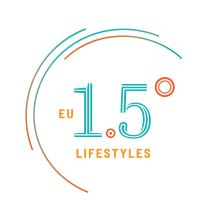
The project FULFILL takes up the concept of sufficiency to study the contribution of lifestyle changes and citizen engagement in decarbonising Europe and fulfilling the goals of the Paris Agreement. FULFILL understands the sufficiency principle as “creating the social, infrastructural, and regulatory conditions for changing individual and collective lifestyles in a way that reduces energy demand and greenhouse gas emissions to an extent that they are within planetary boundaries, and simultaneously contributes to societal well-being”. The choice of the sufficiency principle is justified by the increasing discussion around it, underlining it as a potentially powerful opportunity to actually achieve progress in climate change mitigation. Furthermore, it enables us to go beyond strategies that focus on single behaviours or certain domains and instead to investigate lifestyles in the socio-technical transition as a whole. The critical and systemic application of the sufficiency principle to lifestyle changes and the assessment of its potential contributions to decarbonisation as well as its further intended or unintended consequences are therefore at the heart of this project. The sufficiency principle and sufficient lifestyles lie at the heart of FULFILL, and thus constitute the guiding principle of all work packages and deliverables.

The EU 1.5° Lifestyles project aims to foster the mainstreaming of lifestyles in accordance with the 1.5° limit set in the Paris Agreement. Achieving 1.5° lifestyles requires unprecedented systemic transformations, particularly in high-income countries that are contributing disproportionately to global emissions. How we eat, travel, and set up our homes are key areas where lifestyle changes can make the most impact on emissions reductions while improving quality of life. The focus of the project is thus on how to catalyse change in these areas, including understanding structural barriers and enablers to lifestyle changes. The project involves researchers from Finland, Germany, Hungary, Latvia, the Netherlands, Spain, and Sweden, and is funded through the financial support of the European Union’s Horizon 2020 programme.
The aim of ECEMF is to establish a European forum to bring together energy and climate researchers and policy makers to tackle the key challenge of our time – how to achieve climate neutrality. Answers will be provided by the first inclusive and open full-scale model comparison exercise on achieving climate neutrality in Europe, including from the outset over 20 models and 15 research groups, to produce a coherent and relevant evidence-base for energy and climate policy impact assessment. This evidence-base will support the development of policy-relevant insights for key strategic decisions that will shape the path to climate neutrality.
ECEMF will also advance the state-of-the-art of energy and climate modelling by enabling sharing of: input data using open standards, methods for model comparison building on the vast experience of the consortium, scientific software tools such as the IIASA scenario explorer and hands-on training for researchers.

NDC ASPECTS provides inputs to the GST and supports the potential revision of existing NDCs as well as development of new NDCs for the post-2030 period. The project particularly focuses on four sectoral systems: energy-intensive industries, transport & mobility (land-based transport and international aviation & shipping), buildings, and agriculture, forestry & land-use. For each of those sectors we undertake „Sectoral Conversation“ to co-create evidence-based narratives with sectoral experts and stakeholders. These narratives can then be translated into global pathways informing the Global Stocktake as well as national pathways for strategically selected countries for each of the four sectors.